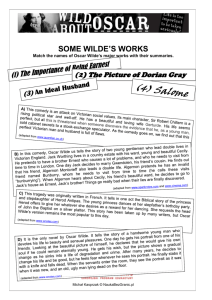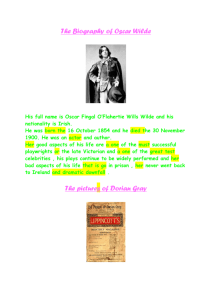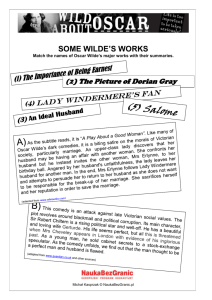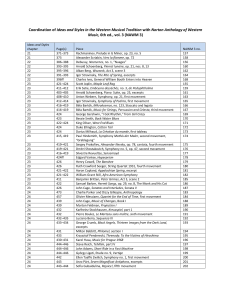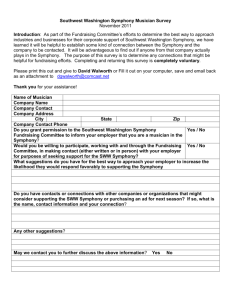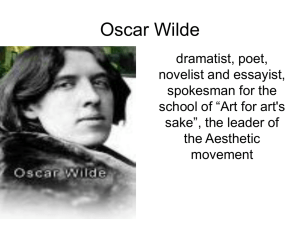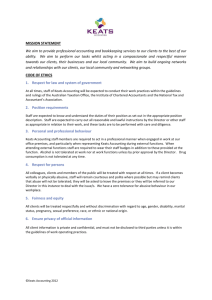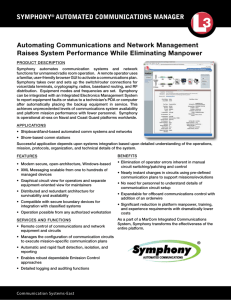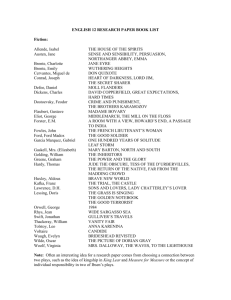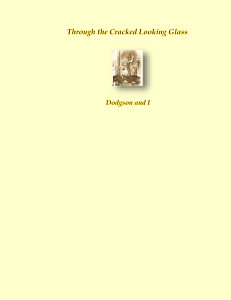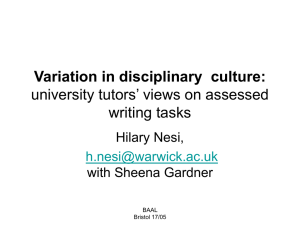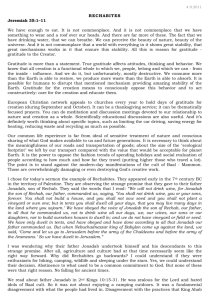OSCAR WILDE Sonnet - WW Norton & Company
advertisement
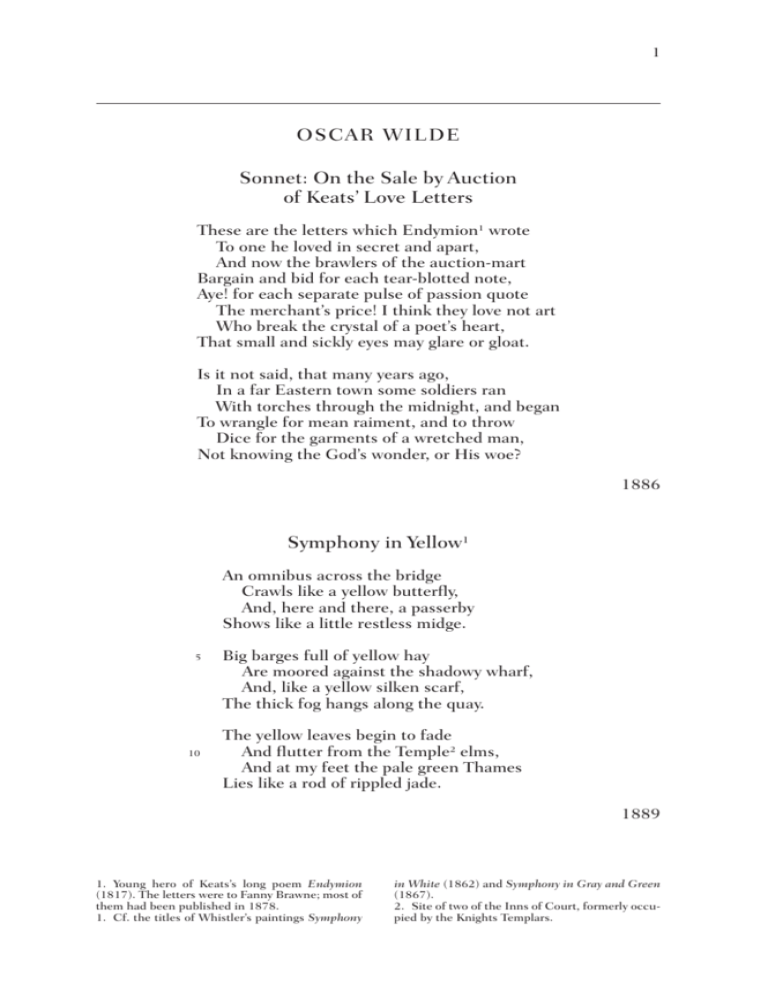
1 OSCAR WILDE Sonnet: On the Sale by Auction of Keats’ Love Letters These are the letters which Endymion1 wrote To one he loved in secret and apart, And now the brawlers of the auction-mart Bargain and bid for each tear-blotted note, Aye! for each separate pulse of passion quote The merchant’s price! I think they love not art Who break the crystal of a poet’s heart, That small and sickly eyes may glare or gloat. Is it not said, that many years ago, In a far Eastern town some soldiers ran With torches through the midnight, and began To wrangle for mean raiment, and to throw Dice for the garments of a wretched man, Not knowing the God’s wonder, or His woe? 1886 Symphony in Yellow1 An omnibus across the bridge Crawls like a yellow butterfly, And, here and there, a passerby Shows like a little restless midge. 5 10 Big barges full of yellow hay Are moored against the shadowy wharf, And, like a yellow silken scarf, The thick fog hangs along the quay. The yellow leaves begin to fade And flutter from the Temple2 elms, And at my feet the pale green Thames Lies like a rod of rippled jade. 1889 1. Young hero of Keats’s long poem Endymion (1817). The letters were to Fanny Brawne; most of them had been published in 1878. 1. Cf. the titles of Whistler’s paintings Symphony in White (1862) and Symphony in Gray and Green (1867). 2. Site of two of the Inns of Court, formerly occupied by the Knights Templars. 2 / Oscar Wilde Hélas1 5 10 To drift with every passion till my soul Is a stringed lute on which all winds can play, Is it for this that I have given away Mine ancient wisdom, and austere control? Methinks my life is a twice-written scroll Scrawled over on some boyish holiday With idle songs for pipe and virelay,2 Which do but mar the secret of the whole. Surely there was a time I might have trod The sunlit heights, and from life’s dissonance Struck one clear chord to reach the ears of God. Is that time dead? lo! with a little rod I did but touch the honey of romance— And must I lose a soul’s inheritance?3 1881 E Tenebris1 5 10 Come down, O Christ, and help me! reach thy hand, For I am drowning in a stormier sea Than Simon on thy lake of Galilee:2 The wine of life is spilt upon the sand, My heart is as some famine-murdered land Whence all good things have perished utterly, And well I know my soul in Hell must lie If I this night before God’s throne should stand. “He sleeps perchance, or rideth to the chase, Like Baal, when his prophets howled that name From morn to noon on Carmel’s smitten height.”3 Nay, peace, I shall behold, before the night, The feet of brass,4 the robe more white than flame, The wounded hands, the weary human face. 1881 1. “Alas!” 2. A song or short lyric in stanzas. 3. Perhaps referring to 1 Samuel 14:24–46. To ensure victory over the Philistines, King Saul orders his army to fast. His son Jonathan fails to hear the order and reaches out the tip of his staff to take some honey. Saul later discovers this and orders his son’s death, but the people intervene to save him. 1. Out of darkness (Latin). 2. Simon Peter, one of the twelve apostles, came close to drowning in a storm until rescued by Christ (Matthew 14.28–31). 3. The poet imagines an ironic voice discouraging him; it uses the language of Elijah when he mocked the priests of Baal for their god’s impotence by suggesting that perhaps Baal was on a journey or asleep (1 Kings 18.19–40). 4. Cf. Revelation 1.13–16, where the “Son of man” is seen in a vision, “his feet like unto fine brass, as if they burned in a furnace.”
